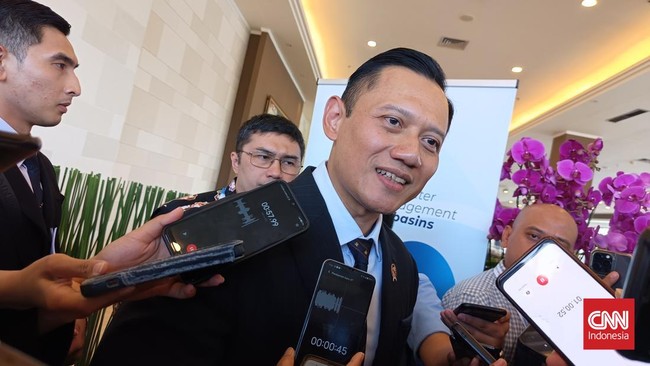The Surveillance Risks Of AI Therapy In Authoritarian Regimes

Table of Contents
Data Collection and Privacy Violations in AI Therapy
AI therapy apps collect vast amounts of personal data, raising serious privacy concerns. These apps often record voice conversations, analyze text messages, and even track user location data. This data is incredibly sensitive, revealing intimate details about an individual's mental state, thoughts, fears, and relationships. The vulnerabilities of this data are immense.
- Sensitive Data Collected: Voice recordings, text transcripts, emotional responses, health information, location data, contact lists, and even biometric data (if integrated with wearable technology).
- Potential Consequences of Data Breaches: Identity theft, financial fraud, blackmail, social ostracism, political persecution, and even physical harm. In authoritarian states, the consequences can be far more severe, leading to arbitrary detention, imprisonment, or disappearance.
- Data Protection Discrepancies: Democratic states generally have stronger data protection laws and independent regulatory bodies compared to authoritarian regimes. Many authoritarian governments lack the legal frameworks and oversight to prevent data breaches or misuse.
Lack of Regulation and Oversight of AI Therapy
The absence of robust regulatory frameworks governing the use of AI therapy in authoritarian settings creates a fertile ground for abuse. Without proper oversight, there’s little to prevent governments or other powerful actors from exploiting this technology for surveillance and social control. The lack of transparency surrounding data handling practices further exacerbates these risks.
- Potential Abuses: AI therapy data could be used to identify political dissidents through sentiment analysis of conversations, monitor the mental health of activists, or even target individuals for harassment or intimidation.
- Challenges of Implementation: Establishing effective regulation in authoritarian environments is extremely difficult due to a lack of political will, corruption, and limited judicial independence.
- International Cooperation: International organizations and human rights groups have a critical role to play in advocating for responsible AI development and promoting ethical guidelines for the use of AI therapy worldwide.
Potential for Manipulation and Coercion Through AI Therapy
AI therapy’s potential for manipulation is a particularly troubling aspect. AI algorithms can be designed to subtly influence users' thoughts and behaviors, potentially leading to a form of digital coercion. This is especially dangerous in authoritarian regimes where dissent is already heavily suppressed.
- Manipulative Techniques: Personalized propaganda delivered through chatbots, targeted misinformation campaigns designed to exploit vulnerabilities, and the use of AI to tailor messaging for maximum impact.
- Psychological Impact: Constant exposure to manipulative AI therapy can have devastating effects on mental well-being, eroding trust, and fostering feelings of helplessness and paranoia.
- Ethical Safeguards: Robust ethical guidelines and independent oversight mechanisms are crucial to prevent the misuse of AI therapy for coercive purposes.
The Role of AI Therapy in Authoritarian Surveillance States
AI therapy's integration into broader surveillance systems presents a profound threat to human rights and civil liberties. Data collected from these apps can be used to build detailed profiles of individuals, predicting their behavior and potentially flagging them as threats to the regime.
- Surveillance Integration: AI therapy data can be combined with data from other surveillance technologies (e.g., facial recognition, social media monitoring) to create a comprehensive picture of an individual's life.
- Predictive Policing: AI algorithms might be used to analyze therapy data and predict potential acts of dissent or unrest, leading to preemptive arrests or other forms of repression.
- Impact on Freedoms: The pervasive surveillance enabled by AI therapy severely restricts freedom of expression, thought, and association – cornerstones of any free society.
Conclusion: Addressing the Surveillance Risks of AI Therapy in Authoritarian Regimes
The surveillance risks associated with AI therapy in authoritarian regimes are substantial. The unchecked collection of sensitive personal data, coupled with a lack of regulation and oversight, creates a dangerous environment for individuals. The potential for manipulation and integration into broader surveillance systems poses an existential threat to freedom of thought and expression.
We must proactively address the surveillance risks of AI therapy in authoritarian regimes to protect individual rights and freedoms. Demand greater transparency and accountability from developers and governments alike. Stronger data protection laws, robust regulatory frameworks, and independent ethical review boards are essential. Let's ensure AI therapy benefits humanity, not just those who seek to control it. Advocate for responsible AI development and deployment, particularly in authoritarian contexts, to protect the vulnerable and safeguard human rights.

Featured Posts
-
 Resultado Penarol Vs Olimpia 0 2 Resumen Y Analisis Del Partido
May 16, 2025
Resultado Penarol Vs Olimpia 0 2 Resumen Y Analisis Del Partido
May 16, 2025 -
 Giant Sea Wall Rapat Koordinasi Menko Ahy Update Pembangunan Terkini
May 16, 2025
Giant Sea Wall Rapat Koordinasi Menko Ahy Update Pembangunan Terkini
May 16, 2025 -
 Ver Roma Monza En Directo Online
May 16, 2025
Ver Roma Monza En Directo Online
May 16, 2025 -
 Where To Invest Identifying The Countrys Busiest New Business Areas
May 16, 2025
Where To Invest Identifying The Countrys Busiest New Business Areas
May 16, 2025 -
 Goles Y Resumen Olimpia Derrota 2 0 A Penarol
May 16, 2025
Goles Y Resumen Olimpia Derrota 2 0 A Penarol
May 16, 2025
